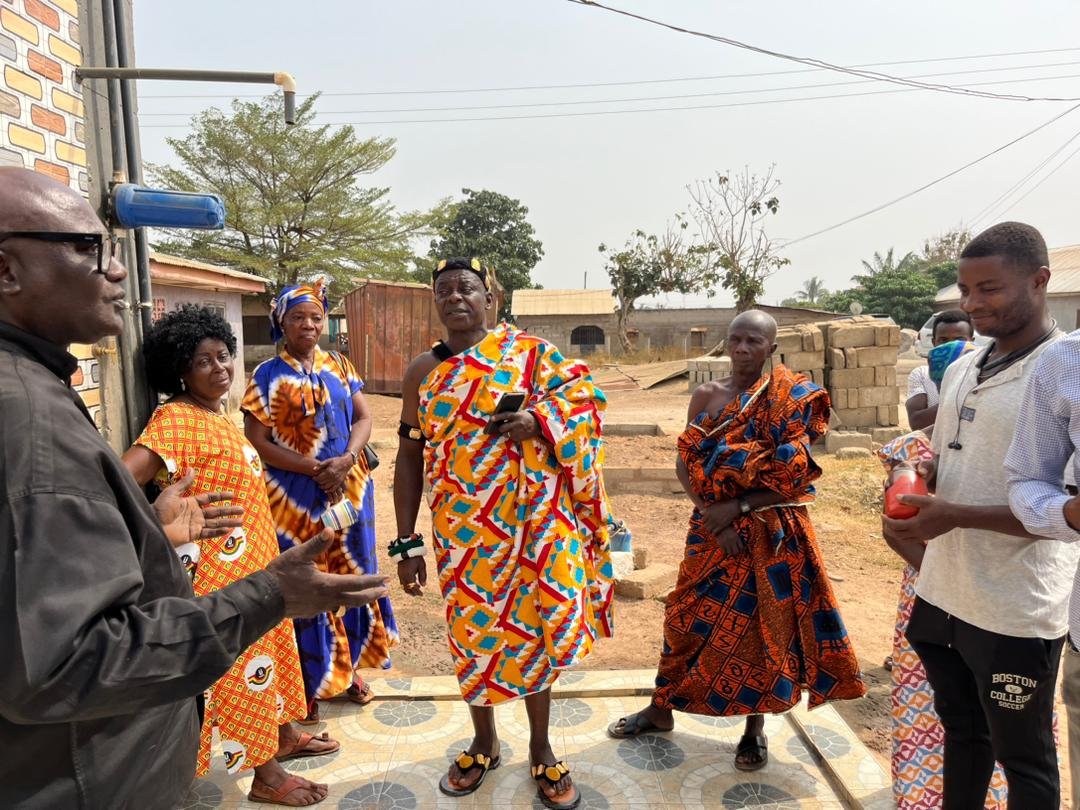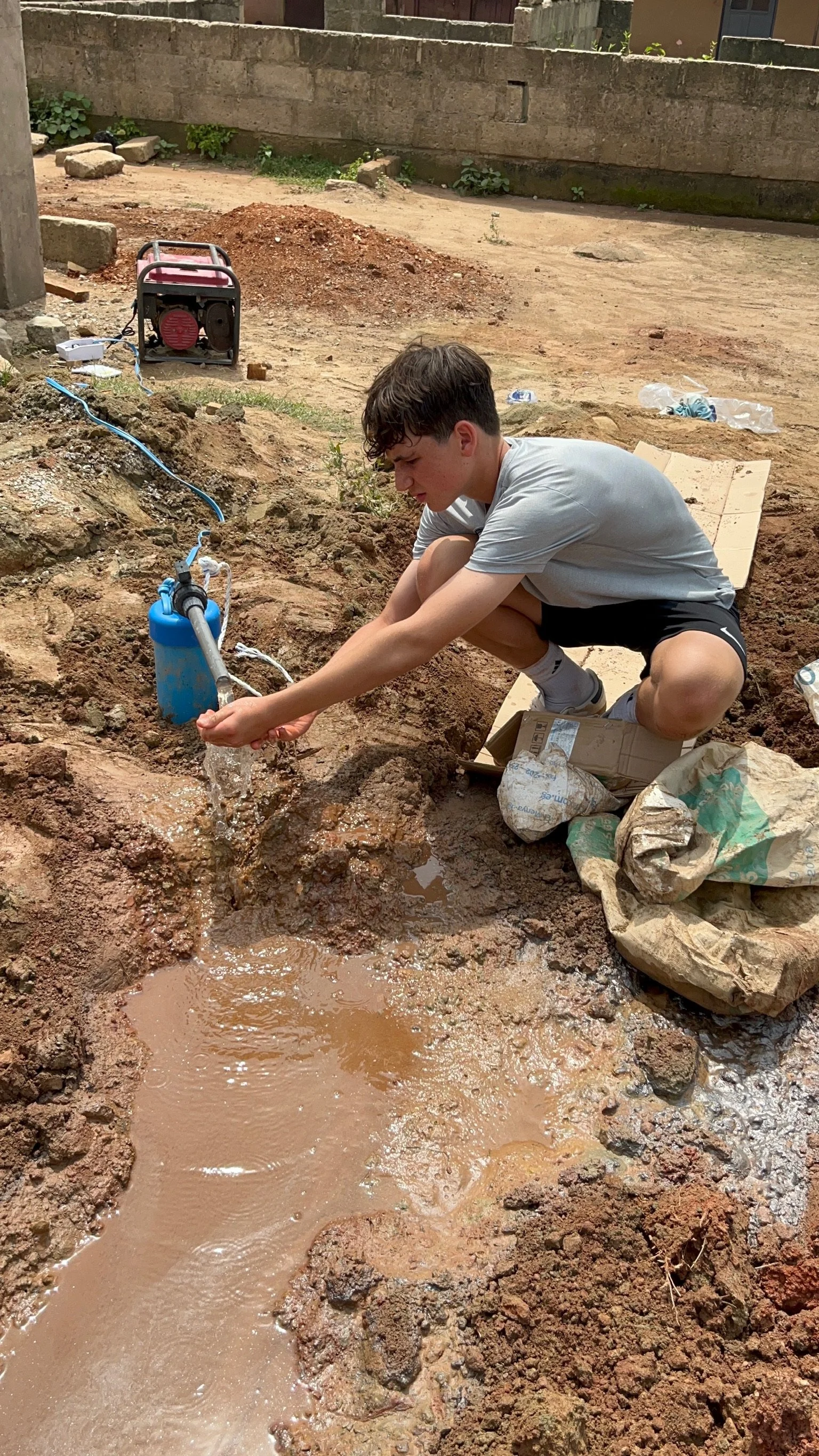
OUR NEXT TWO PROJECTS

With one successful project done, we have high aspirations for what’s next, check out our next two projects.
RISING STARS BOREHOLE
In the Kyeibi region, Rising Stars of Africa, an organization dedicated to bringing Ghanaian soccer talent to the USA and Europe, is making a significant impact of the lives of young athletes. However, the players face the daily struggle of access to clean water. Each day they carry heavy buckets from the village well to their home. In the dry season, the well can run out leaving them without water for days. By supporting our mission, a clean, sustainable water source that draws from the natural water table will be provided. This not only eliminates the risk of illness but also allows these aspiring athletes to focus on what matters most: their futures.
COMMUNITY LEARNING CENTER
West of Kumasi, in Ghana, lies Esaso, a small, vibrant community with a big request. The community leaders expressed what they desperately need. Not only do they need a clean and renewable water source, but also a library to support education and build community. This project is a testament to Sankofa's mission of providing access to clean, renewable water, while also fostering educational opportunities. Your support will help transform this vision into a powerful resource for the people of Esaso.
📚 Educational Benefits of Libraries in Rural Ghana
📖 Enhanced Literacy: Libraries provide diverse reading materials, improving literacy rates among children and adults.
🏫 Academic Achievement: Students with library access show better academic performance.
📘 Support for Educational Growth: Public libraries supply resources that support Ghana's expanding education sector.
💼 Skill Development: Libraries offer tools for learning new skills, boosting personal and community growth.
🤝 Community Building: Libraries serve as inclusive spaces for all ages, fostering lifelong learning, social interaction, and collective development.
✨ Libraries in rural Ghana play a key role in improving literacy, education, and community cohesion.
The Crisis
🚰 Over 38% of rural Ghanaians lack access to safe drinking water—relying on polluted rivers and unsafe wells.
🚽 Nearly 80% of rural communities have no proper toilets, leading to widespread water contamination.
🦠 76% of drinking water sources are contaminated with fecal matter, causing deadly illnesses like cholera and diarrhea.
🌍 Illegal gold mining (“galamsey”) is poisoning water sources with mercury, threatening entire villages.
The Impact
💔 Children miss school due to waterborne diseases.
💔 Ghanaians spend hours fetching water, instead of working, getting an education, or having fun.
💔 Thousands die each year from preventable illnesses—all because they lack clean water.
To see what one of these projects looks like finished, check out this button.

